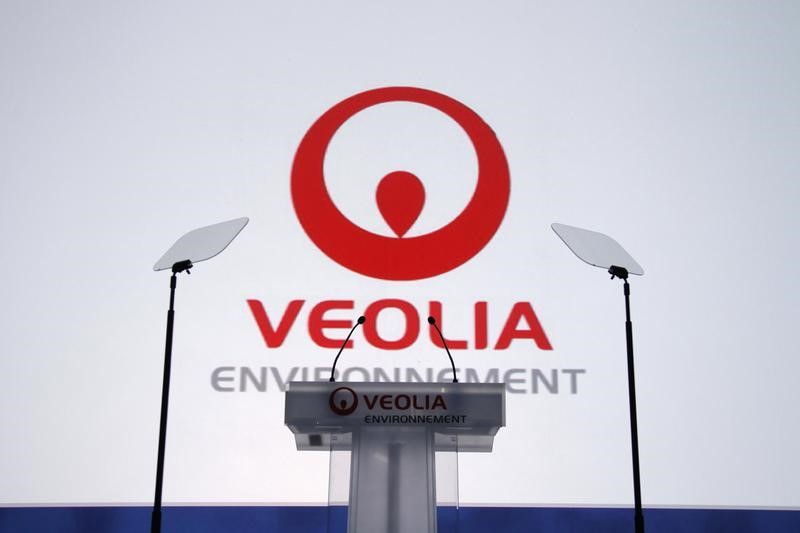This post was originally published on this site
https://i-invdn-com.akamaized.net/news/LYNXMPEA7R07C_M.jpg
Investing.com — What’s not to like about Veolia’s move on Suez?
Certainly, there are no losers among the primary actors, judging by Monday’s share price reaction: Suez (PA:SEVI) stock was up 19%, Veolia (PA:VIE) stock was up 3.5% and Engie (PA:ENGIE) stock was up 6.0% after the weekend announcement that Veolia wants to buy almost all of Engie’s 32% stake in Suez, in a prelude to what it hopes will be a full merger.
A merged Veolia-Suez would be a formidable global force in water management, a good business to be in, given the likelihood that climate change and population growth will require much more efficient management of water resources for the foreseeable future. Veolia said the deal would create 500 million euros in greater operational efficiency almost immediately,
At the proposed price of 15.50 euros a share, Engie would get over 3 billion euros (some $3.5 billion) to strengthen its balance sheet and sharpen its focus on its energy business, positioning it nicely for the looming splurge on renewables promised as part of the EU’s pandemic recovery plans.
Engie had signalled that it was looking at doing just that a couple of months ago when it gave up its long-standing opposition to selling the Suez stake, so its cool response to Veolia’s approach at the weekend is a bit puzzling. Engie said it “will study this proposal in the coming weeks” and “give preference to the most attractive solution for its shareholders, with due respect to the stakeholders, and after taking into consideration the quality of the industrial project.”
The charitable interpretation to this is that Engie is simply playing hard to get while it tries to squeeze a bit more money out of Veolia.
However, the market is implying a non-negligible risk of the deal not going through: Even after their morning surge, Suez shares were still nearly a euro below the price offered by Veolia.
Antitrust concerns may be partly responsible for that, but Veolia said that it already has a commitment from Meridiam, an infrastructure management company, to buy its French water business. That would address the most acute monopoly issue.
That leaves personal and corporate rivalry as the other likely explanation. Veolia will still need the support of Suez’s management if it wants to keep the costs of a full offer down. Suez’s only response at the weekend was to note sourly that it hadn’t been consulted at all.
Suez CEO Bertrand Camus, a company lifer, may well need squaring with either a board position at Veolia or a highly sweetened exit package to support a full merger.
Meanwhile, Claire Waysande, Engie’s interim CEO since the departure of Isabelle Kocher in February, has spent almost all her working life in politics rather than business. She is not a natural candidate to put shareholder interests above those of other vested interests (sorry, ‘stakeholders’).
Tellingly, Veolia chief executive Antoine Frerot, in an interview with the Financial Times compared a possible merger to one between Manchester United and Manchester City to underline the scale of the powerhouse they would be creating. But anyone with even a passing interest in soccer would know that internal tensions would make the resulting monster acutely dysfunctional.
Unless the merger is done properly, the combined company will end up being worth less than the sum of its parts, and the 10 billion euros that it will have required will be just waste water down the drain.

